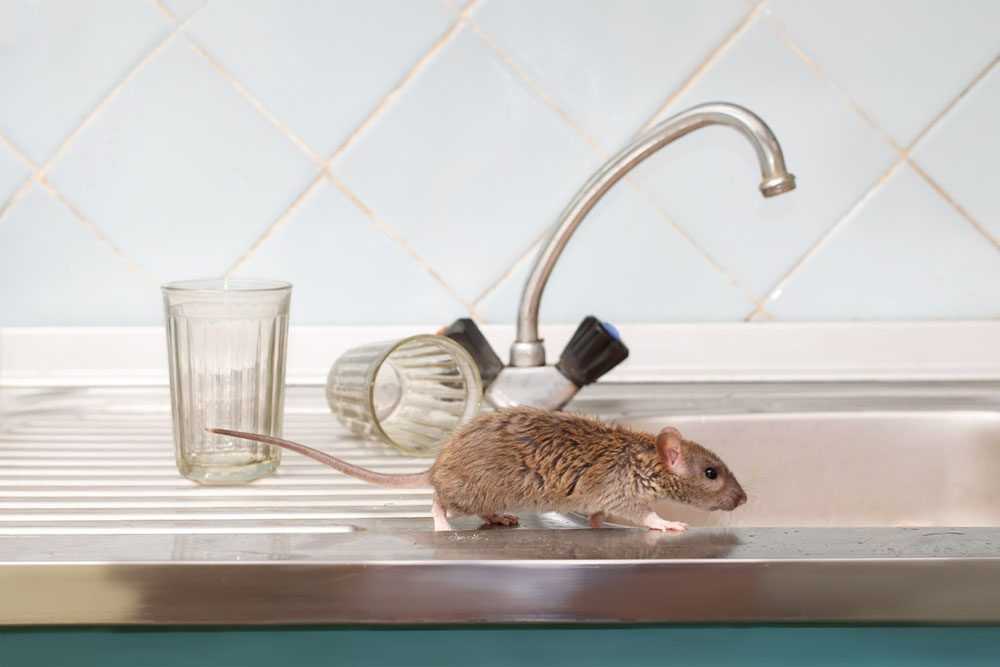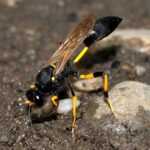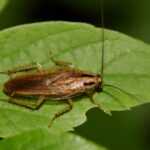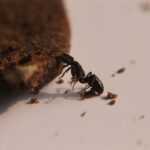As temperatures drop through the fall and winter, animals and insects everywhere are looking for one thing: shelter! The worst culprits in Portland, Seattle, Boise, and other cities within the Pacific Northwest seem to be rodents, specifically mice and rats. Even if you think that all the holes in your exterior walls are sealed, mice can get through the space of a dime! Mice and rats can cause extensive damage, spread disease, and can even cause fires—so it’s important to get rid of rodents the minute you find them. Effective mouse control is crucial to prevent these issues and ensure a safe home environment.
Understanding Mouse Behavior
Understanding mouse behavior is crucial in effectively repelling and controlling mice infestations. Mice are nocturnal creatures, meaning they are most active at night, and they have a strong sense of smell and hearing. They are also highly adaptable and can thrive in a variety of environments. Mice are attracted to food sources, warmth, and shelter, which is why they often infest homes and buildings.
Mice are also highly social creatures and live in colonies. They communicate with each other through scent markings and vocalizations. Female mice can have up to 12 litters per year, with an average of 6-8 pups per litter. This means that a small mouse infestation can quickly escalate into a large problem if left unchecked.
Identifying Mouse Infestation
Identifying a mouse infestation can be challenging, but there are several signs to look out for. These include:
- Droppings: Mouse droppings are small, dark, and pellet-shaped. They are often found in areas where mice frequent, such as along walls, in cupboards, and behind appliances.
- Gnaw marks: Mice gnaw on a variety of materials, including wood, plastic, and fabric. Look for small, rough holes or gnaw marks on surfaces.
- Nesting material: Mice use a variety of materials to build their nests, including paper, fabric, and insulation. Look for small, messy nests in hidden areas.
- Footprints: Mouse footprints are small and may be difficult to spot. Look for tiny footprints in dusty areas or on surfaces that are not frequently cleaned.
- Unusual noises: Mice are nocturnal, so they are most active at night. Listen for unusual noises, such as scratching, scurrying, or squeaking, coming from walls or ceilings.
Natural Remedies Can Be Useful to Get Rid of Mice
Let’s be clear: Natural remedies are not going to get rid of mice overnight, nor are they going to get rid of large populations of mice. DIY pest control also doesn’t go very far when it comes to treating a full-blown infestation, and we will always recommend a professional inspection if you have a pest problem.
There are a few techniques that can help to get rid of mice this winter—especially when used in conjunction with exclusionary methods. Using natural predators’ scents, like cat urine, can effectively deter mice by placing collected kitty litter near entry points. “Exclusion” pest control is simple: block pests from getting inside!
Our Top 5 Ways to Repel Mice
You may be able to prevent mice with these natural mouse repellent methods:
1. Peppermint Oil
Essential oils are a great natural repellent for pests, and mice agree! Roll or spray peppermint oil along baseboards or points of entry.
2. Apple Cider Vinegar
Dilute with water, and then spray around the exterior of your home. You can also spray inside around entry points. Be sure to apply once a month!
3. Fabric Softener Sheets
A hotly debated topic, some people swear by them, and other people insist that mice just end up making nests out of them. There’s nothing to lose by trying them out–as long as it’s not your only type of mouse repellent. Using dryer sheets alone is very unlikely to be effective.
4. Used Kitty Litter
Cat urine, while not the most appealing remedy, can warn mice off when used in the form of used kitty litter. Placement is key—for the mice and for you! Place in discrete locations around rodent entry points.
5. Steel Wool
Now we’re talking! This is our favorite method of all, and the most reliable. Mice and rodents aren’t able to chew through the tough material. Simply stick steel wool in any crevices or holes in your home, using a strong wood and metal adhesive to keep it in place.
If you’re going to invest time and energy into a home remedy to get rid of mice, invest in steel wool first! It accomplishes our main goal, which is to exclude and prevent mice in the first place. Additionally, consider using a catch and release trap as a humane and effective way to capture and relocate mice.
Sealing Entry Points
Sealing entry points is a crucial step in preventing mouse infestations. Mice can squeeze through tiny openings, so it’s essential to seal all cracks and crevices around your home. Use steel wool, caulk, or expanding foam to seal holes and gaps around:
- Pipes and wires
- Vents and chimneys
- Doors and windows
- Baseboards and moldings
- Holes around electrical outlets and switches
It’s also essential to seal any gaps or holes in your home’s foundation, including cracks in the walls, floors, and ceilings.
Winter-Specific Tips
Winter is a prime time for mouse infestations, as mice seek warmth and shelter from the cold. Here are some winter-specific tips to help prevent mouse infestations:
- Seal all entry points: As mentioned earlier, sealing entry points is crucial in preventing mouse infestations. Make sure to seal all cracks and crevices around your home, including holes around pipes, wires, and vents.
- Keep your home clean: Keep your home clean and clutter-free, especially in areas where mice frequent, such as the kitchen and pantry. Store food in sealed containers and clean up crumbs and spills promptly.
- Use natural deterrents: Use natural deterrents, such as peppermint oil, used kitty litter, or cotton balls soaked in peppermint oil, to repel mice.
- Keep your home warm: Keep your home warm, but not too warm. Mice prefer temperatures between 68-72°F (20-22°C).
- Be proactive: Be proactive in preventing mouse infestations by regularly inspecting your home for signs of mice and taking steps to prevent them.
By following these tips, you can help prevent mouse infestations and keep your home safe and healthy.
Regular Mice Inspections Can Prevent Infestations
Every homeowner should take the following steps to prevent a mice infestation:
- Inspect your home to look for signs of mice.
- Find possible entry points and seal or close them off.
- Keep food sealed and securely stored; never leave it out.
- Manage pet food properly to avoid attracting mice and other pests.
- Keep inside and outside areas tidy and free of exposed garbage.
- Make sure any foliage is at least three feet away from the foundation of your home.
- During the colder months, keep birdseed to a minimum—especially close to the home!
We recommend inspecting once a month, but at the first sign of trouble—start controlling! If you see a mouse, you are almost guaranteed to have more living in your home. Call PURCOR at any time for more tips or a professional treatment!
"*" indicates required fields
"*" indicates required fields




